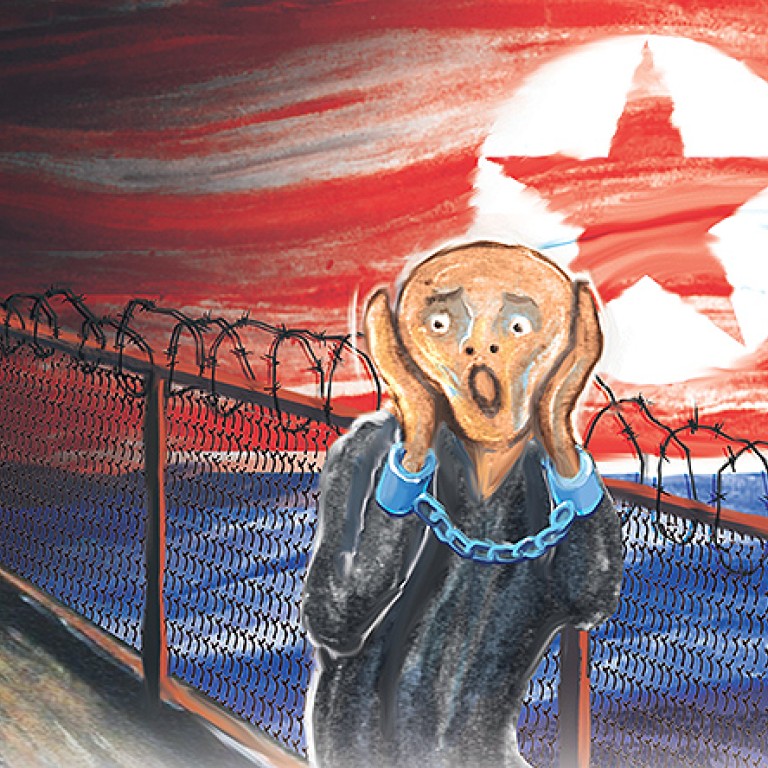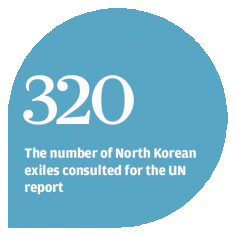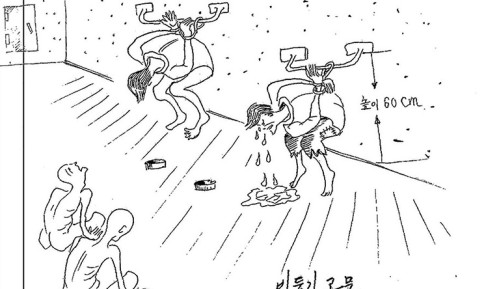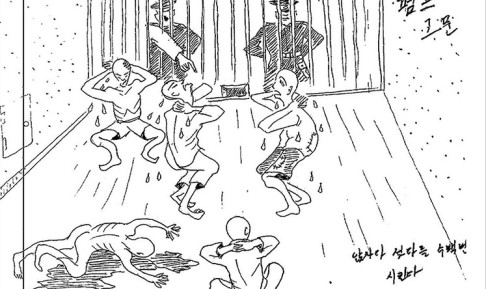
UN report on North Korea a glimpse into a nightmare state
Report on North Korea by UN rights panel portrays world of torture, murder and all-pervasive fear
Torture, deliberate starvation and other abuses carried out by North Korean authorities - possibly on the orders of supreme leader Kim Jong-un himself - constitute crimes against humanity and should be referred to an international court or tribunal for prosecution, UN investigators have said.

Watch: UN report: Former North Korea detainees speak of ordeal
It added that the "gravity, scale and nature of the violations" in the totalitarian state over several decades do not have "any parallel in the contemporary world".
The chair of the panel established by the UN Human Rights Council last March, retired Australian chief justice Michael Kirby, said the findings reminded him of the extensive horrors spawned by Nazi Germany and other Axis powers.
Among the most shocking stories gathered by the commission were those from the kwanliso political prison camps, evoking the darkest chapters of world history.
"One of the witnesses from one of the camps said that his duties included gathering up the bodies of those who had died of starvation and putting them in a pot and burning them," Kirby said. The ex-inmate then took the ash and remaining body parts to be used as fertiliser in nearby fields.
"When you see that image in your mind of bodies being burned, and of parts of bodies, unfortunately it does bring back to those, certainly of my age, memories of the end of the second world war," the 74-year-old said.
Barred by Pyongyang, the commission based its report on testimony from 320 North Korean exiles - dubbed "human scum" by Pyongyang.

Pyongyang denies the existence of camps, but the report said that stance was disproved by testimony from former prisoners, guards and neighbours, along with satellite imagery.
"I hope the international community will be moved by the detail" in this report, Kirby said.
Although the report catalogues systematic abuses that have long been reported by human-rights activists, defectors, foreign media outlets and foreign governments, the comprehensive nature of the report by a UN-appointed panel itself was unprecedented.
The document called for urgent action by the international community, including referring the complaints to the International Criminal Court in the Hague. Alternatively, the report noted that the UN Security Council has the power to set up a special tribunal for North Korea.
However, many observers believe that any attempt to take such action would be blocked by China, North Korea's closest ally and a veto-wielding member of the UN Security Council. The report chastised China for forcibly repatriating some North Korean refugees and for denying some 20,000 children born to North Korean women in China health and educational services.
The UN Human Rights Council is scheduled to consider the panel's recommendations at a meeting next month.
North Korea rejected the panel's findings in a statement. "We will continue to strongly respond to the end to any attempt of regime-change and pressure under the pretext of `human rights protection'," it read, according to Reuters.
Wu Haitao, China's ambassador to the UN office in Geneva, said in a letter to the commission that the country did not support the establishment of the panel in the first place. He also reiterated Beijing's position that North Koreans who enter China "do it for economic reasons" and "are not refugees", noting that some had committed crimes including "theft, robbery and illegal harvesting" in China.
When you see that image in your mind of bodies being burned, unfortunately it does bring back to those memories of the end of the second world war
Between 80,000 and 120,000 people are thought to be held in North Korean camps, including generations of entire families arrested for alleged political crimes under collective guilt rules.
Hundreds of thousands of others were believed to have perished in the camps over the past half century, "gradually eliminated through deliberate starvation, forced labour, executions, torture", the report said.
Drawings by a former prisoner published in the report detailed torture methods with names like "pigeon", "aeroplane" and "motorcycle".

The report also pointed to allegations that political prisoners were killed in medical experiments conducted to test the impact of chemical and biological weapons.
The report said, however, that it could not verify the accuracy of such claims, nor those regarding medical experiments in hospitals for the disabled. But it said it had clear evidence that chemicals were forced into women's vaginas to force abortions.
For those outside the camps, public executions and the fear of imprisonment were tools to "terrorise" the population, whose daily life was marked by constant "surveillance, coercion, fear and punishment to preclude the expression of any dissent", the report said.
It detailed the use of public executions with machine guns, with entire school classes brought to watch.
As part of the report, the panel published a three-page letter that it sent to Kim, alleging that the abuses were perpetrated by state security officials, the army, the judiciary, the Ministry of Security and the Workers' Party.
"It is open to inference that the officials are, in some instances, acting under your personal control," Kirby wrote.
The report did not list by name any particular officials that panellists believed should be held responsible, although it said it had a database of suspects.
The letter to Kim also drew attention to the principles of international criminal law, under which military commanders and civilian superiors can be held responsible for failing to prevent and stop crimes against humanity committed by people under their effective control.
One shocking section of the report is on the experiences of North Koreans who escape to China and are sent back, often with the assistance of Chinese authorities. The report describes forced, late-term abortions without anaesthetic, the use of chemicals to induce labour, beatings and poor nutrition.
Kenneth Roth, executive director at Human Rights Watch, said he hoped the report would "open the eyes of the UN Security Council", which he said had focused only on the nuclear threat posed by Pyongyang, and overlooked "the crimes of North Korean leaders who have overseen a brutal system of gulags, public executions, disappearances and mass starvation".
Agence France-Presse, The Los Angeles Times
